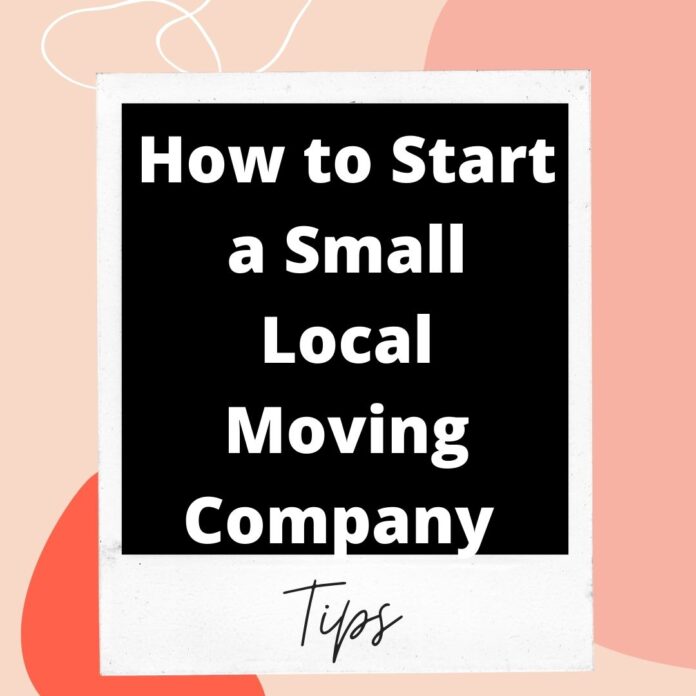According to a report published by the Pew Research Center in mid-2020, one in five adults in America are either moving to a new city or know somebody who is. The outbreak and rapid spread of Covid-19 has seen people retreat indoors. And while movement was somewhat limited when the disease first broke out in early 2020, an increasing number of people have found reason and incentive to have a change of address – 22% of US adults to be exact, no small figure.
In short, if you’re looking to start a local moving business and weighing the viability of the idea, the reality on the ground is quite rosy. In fact, there aren’t many business ideas more feasible right now than launching a moving company. It’s good to highlight that moving companies come in different types, mostly depending on the services they offer and geographic area they serve. In the case of local moving companies, these are outfits that serve within the confines of the state they’re based in, typically within a 100-mile radius. Most tend to be residential, but a local moving business can also cater to commercial clientele.
If you’re toying with the idea of starting a local moving company, here are the steps you need to take to build a successful business that will stand the test of time.
Draft a business plan for your company
As with every business venture, opening a moving company should start with a robust business plan. Entrepreneurs who start out with a solid business plan are 16% more likely to succeed, according to findings from the Harvard Business Review.
A business plan provides a clear and strategic framework while also serving as a roadmap for your business. It also covers every little aspect about the business, starting with the name of the company and services you plan to offer, breakdown of startup costs (overheads like rent, operating expenses like labor, trucks etc.) the source of funding, projection of market trends and consumer behaviors, and much more.
Get the necessary permits
The idea is to open a legal business, and for that, you need to acquire all the required moving and transportation permits. Usually, this depends on the type of moving business you want to start. Since our focus is a local moving business, you won’t need a USDOT number like a long-distance mover. Confirm the requirements needed in your state and the local regulations as these differ from one state to the next. In New York, for example, you’re required to have a minimum of two years’ experience in the business, supported by tax documents.
Calculate the costs involved in setting up
There is no definite figure you can expect when starting a moving business. This will depend on the size of the operation and how fast you plan to grow. On top of the fees you’ll fork out for permits and licenses, not to mention formation of the business entity and moving and transportation insurance, you will need to budget for equipment and logistical costs.
At a basic level, some of the typical expenses you can expect include:
- Moving truck(s) – rented or purchased; used or new buys
- Moving accessories – dollies (rentable for even $10), moving pads and blankets, furniture covers, floor protectors, staff uniforms, ropes, furniture belts, packing wrapping material etc.
- A building lease if you run an office
- Gas and vehicle maintenance
- Marketing – website, advertising, business cards etc.
- Staff payroll
It will be easier if you know these costs upfront.
Market your moving business
After investing in a company vehicle (one should suffice for starters) and moving equipment, next comes the matter of putting your brand out there. A website is a must, but start by consulting your business plan where you’ve analyzed your target market – this is the group you’ll base your marketing around. To expand your reach, consider a mix of both digital and print media, and keep in mind that your most powerful marketing weapon when starting out is the first customers you’ll serve. Nothing beats word of mouth.
Establish the tools for lasting success
Your success as a business will largely depend on the tools and processes you invest in. That applies as much to the accounting and investment side of things as it does on how you run the business:
- Always follow through on your word – customer promises and agreements should be followed through without fail. Your old customers can be your making or undoing.
- Be courteous and transparent in your communications – in person, on the web, or on phone – and always take customer concerns and feedback on board.
- Listen to customers and resolve any issues promptly and satisfactorily.
- Remain in touch with customers you’ve served through reward programs, discounts, specials etc. so they’ll give you top priority next they or someone they know will be moving.
Conclusion
Look, starting a local moving business and having a moving calendar filled up around the year will not be easy to accomplish. However, as long as the market is there and you’re persistent in your goals and ambitions, get there you will.















